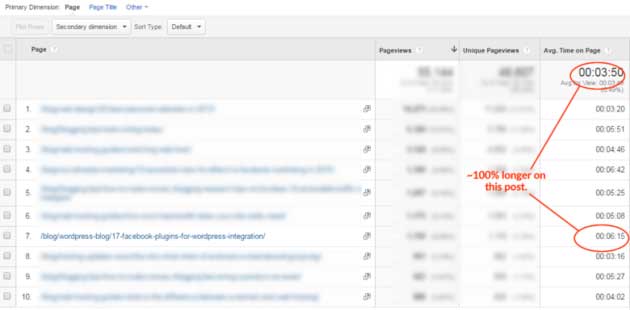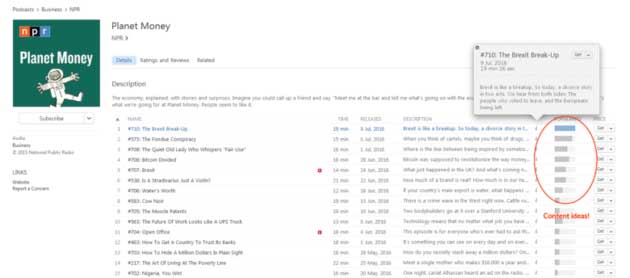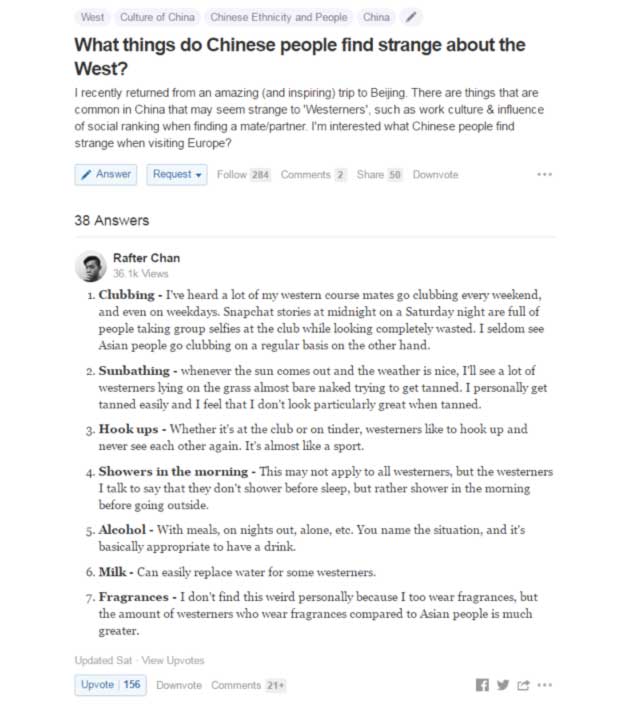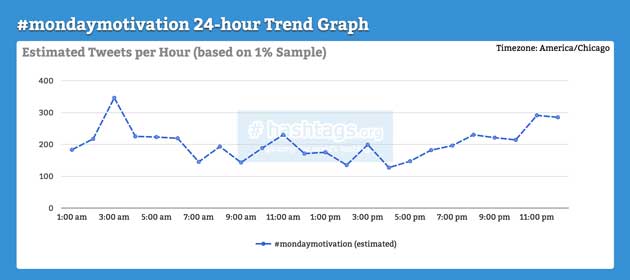“PB139: Challenge: Create Content That Answers a FAQ” plus 1 more | |
| PB139: Challenge: Create Content That Answers a FAQ Posted: 03 Aug 2016 12:35 AM PDT Challenge: Create Content That Answers a FAQThis is the 2nd Challenge of our 7 Days to Getting Your Blogging Groove Back Challenge that we kicked off a couple of episodes ago. To recap – every day for the next week I'm going to suggest a particular style of blog post for you to create. My challenge is to create and publish that content – to join our ProBlogger Challenge Group on Facebook and to share your post and to check out the other posts others are submitting. In Today's Episode Challenge: Create Content That Answers a FAQListen to this episode above in the player or here on iTunes (look for episode PB139). Some of my most popular blog posts have been in response to reader questions. If one reader is asking a question, it is likely that many readers have the same question. How to Find a Question to Answer
Today's Challenge
Further Resources on Creating Content That Answers a FAQ
Hi there, this is Darren from ProBlogger. Today, I want to issue you with a challenge to create a frequently asked question post for your blog. This is day two or the second challenge in our seven days to get your blogging groove back challenge that we kicked off a couple of episodes ago. To recap, everyday for the next week I’m suggesting a particular style of blog post for you to create. The challenge is to create and publish that post on your blog and then to join our Facebook group which is called the ProBlogger Challenge Group over on Facebook and to share the post that you created and to check out the post that others are submitting as well. Yesterday, I asked you to create a list post and it's fantastic to see all of those list posts being submitted to the group. I’m reading every one that I possibly can and there's been some great posts submitted. Today, I want to challenge you to write a post that is an answer to a frequently asked question. In today's podcast, it will just take ten or so minutes. I’m going to tell you why I think this is a great post and give you a few tips on how to work out what question to answer. You can check out today's show notes with all the details of the challenge as well as some further reading that I've got for you today over at problogger.com/podcast/139. Let's get to the challenge. One of the easiest ways to find something to blog about that connects with your readers, that actually brings about change in their life is to answer their questions, particularly questions that more than one of your readers is asking. Even in the first few months of my blogging, I remember getting a few comments and a few emails from readers asking for more information on something that I've written or asking for my opinion or insight on the topics that I've been covering in the blog. Sometimes, their questions were quite to the point and bite-sized that I could answer in a sentence or two, and sometimes they're more open-ended. Sometimes there were very beginner type questions and sometimes there were more advanced. When I first started getting these types of questions, I would attempt to answer those questions in the medium that they were asked. If it came in as a blog comment, I would reply to that via comment. If it came in via email, I would send an email back. I very quickly realized that I was being asked the same types of questions over and over again. The answers that I was giving to my readers one on one as I respond to a comment or via email might be relevant for a wider audience. I decided as a result of this amazing realization that we all have overtime that maybe I should be replying in a public way and make use of those answers and turn them into blog posts. That's what I began to do. For a while there, I had a folder on my computer's desktop called Reader's Questions that I put text files in with the reader’s questions. I began to take note of the questions I was getting over and over again. I transitioned that system to Evernote and today have it all over on Google Documents because Evernote now are charging and Google Docs is free. That's where I keep all my reader questions. What I noticed when I started to turn questions and turn my answers to questions into blog posts is that my blogs began to grow in terms of search traffic. It turns out if one reader is asking you a question, you can bet that they and other people are probably searching on Google, social media and other search engines like iTunes for those answers as well. As I looked today, my best performing blog post on both of my main blogs, a number of them are really just answers to questions. Over on Digital Photography School, my post How to Hold a Digital Camera is one example of that. It started as a question for a reader. How should I hold my camera? On ProBlogger one of my most popular posts for many years was a post called What is A Blog? This was another example where that came in. Particularly in the early days of ProBlogger, 2004, 2005, a lot of people just didn't know what a blog was. It doesn't get so much traffic these days because most people are familiar with blogs. Back then, it was something that a lot of people were asking. In both of those examples that I just gave you, the questions are very, very basic. They're very, very beginner-y. In fact, in both cases I remember almost not publishing the post because I was a bit embarrassed about how basic they were. I’m glad I did because between those two posts, they've had over a million visitors. Imagine if I had not written them. Pay attention to the beginner-y questions that you get asked. You will find that there is a lot of demand for answers to those beginner-y questions but you also will get some demand for more intermediate and advanced questions as well. You'll also find those more advanced questions, there's less competition for them as well. The beginner questions like how to hold a camera, there are literally thousands of posts on the internet on those particular topics. There is more competition there. For your challenge today, I encourage you to go deep or to tackle something that is beginner-y. It's totally up to you. For some of you, you probably already know the frequently asked question that you want to answer and so you might want to just stop this podcast right now and go away and write the post, come over to the Facebook group, and share it with us and check out some of the other posts that people have written. But if you are wondering what on Earth am I going to write about today, let me give you some tips on finding the question that you should answer today. I've got seven things that you could do to help find that question. Firstly, you could simply ask your readers what questions they have. It sounds a bit meta, I know, to ask the question to your readers to find their questions but it's something I do semi-regularly on my blog and on my social. It could be as simple as putting a tweet out. "I want to write a blog post today based on your questions, what questions do you have?" You might do that on Facebook where people can see each other's responses as well. You might also jump on Facebook Live and do an ask me anything live video. That's something that I've done semi-regularly and it never fails to unearth a question that I could then later on write a blogpost about. You might want to email some or all of your readers and even send them a little survey, or just put out a call. "Do you have any questions that you would like me to write about," if you've got enough readers. All those depend on you having enough readers to answer that question. If you don't have any readers already, check out other people's blogs, check out forums, check out social media pages or social media groups that you might be a part of that are relevant for your niche. It's amazing how many questions get asked in those forums and it's very easy for you to take those questions and write the answer. You may even have the opportunity to share the link in response to the question that gets asked in those forums or social media groups. You might want to check out your own comments on your blogs or emails that you've received previously from readers, they may unearth questions for you. You might want to go to a question site like Quora, I'll link to it in today's show notes, where you can type in any topic whatsoever and find what the most frequently asked question is on that topic. I just did it a few minutes ago and put in Photography and I came up with a list of three or four posts that we could write on Digital Photography School that we haven't written before but they're frequently asked questions. You could also choose to go to Yahoo! Answers which is another site dedicated to asking and answering of questions. You might want to find a beginner in your niche to question. Perhaps you know someone just starting out in your niche or maybe you've got a reader who's just starting out, who's left a beginner-y type question. It's something like, "I'm just starting with this, this is really helpful." Email that reader. If they're local to you, buy them a coffee. If they're not, get on Skype with them and pick their brain, find out what their biggest challenges and questions are. Another thing you might want to do is think back in time to when you had a lot of questions in your niche. When you were just starting out in your particular area of expertise, what was your biggest question? Write about what you've learned, how you would answer that question today. Another thing that you might want to consider doing is writing a post on a question you currently have today. You don't have to have the answer to your own question to be able to write a post on that question. You could actually have a burning question of your own and then spend some time today researching the answer to that question, seeing what other people have written, and then write a list post or a link up post to where you link to the advice from other people. Maybe include a few quotes from their articles and of course link to the source of those quotes as well and present the answers to your own question according to other bloggers in your particular niche. There's all kinds of ways that you can find a question today. The key is to identify one, and then to write your frequently asked question post. You may actually in thinking through this topic come up with a number of posts that you could come back to later as well. There's a whole heap of different types of questions you can be asking today. On Digital Photography School we get asked a lot of comparison type questions. "Which camera should I buy, this camera or this camera?" That might be the approach that you take. We get questions like, "Should I shoot it as JPEG or should I shoot in RAW format?" Those are two different types of image files. You can do a comparison type post. You could answer a question like, "How do I do this or how do I learn this?" You might want to write more of a teaching question. You might answer a question like what is blogging or what is photography or what is the rule of thirds? These are definition type posts. You can see here there's a whole heap of different types of posts that you could write in response to questions. My challenge to you today is to choose a frequently asked question if possible and to write a post or create a video or podcast that answers that question. Once you've written it, head over to the Facebook group. The Facebook group is called ProBlogger Challenge Group. Share your post, share the frequently asked question that you write, the link. Don't share any old posts, just share the new one that you've written today. Then if you've got time, take a few minutes to check out, like, comment on other posts that people are submitting in the Facebook group as well. I'd love to see your posts as a result of today's challenge. Head over to the Facebook group now and share them once you've written them. Tune in tomorrow because I've got another challenge for you to create for your blog. Looking forward to seeing what you come up with and chatting with you tomorrow. I link to the Facebook group in our show notes so you can find it that way. Also, you can find some further reading and links to some of the examples that I used today and links that I mentioned today. I really look forward to chatting with you in tomorrow's podcast. In the meantime, if you've got any questions, ping me over on Twitter at @ProBlogger, more than happy to interact with you there or ask your questions in the Facebook group today. As yesterday, I encourage you to invite your blogging friends to be part of this challenge. They can join anytime they like and I'd really love to meet them and see what they come up with as well. How did you go with today's episode?I'd love to see your post. Tune it tomorrow for another challenge. Enjoy this podcast? Sign up to our ProBloggerPLUS newsletter to get notified of all new tutorials and podcasts below. The post PB139: Challenge: Create Content That Answers a FAQ appeared first on ProBlogger Podcast. This posting includes an audio/video/photo media file: Download Now |
| How to Find Blog Post Ideas That People Can’t Wait to Read Posted: 02 Aug 2016 07:00 AM PDT By Jerry Low. When it comes to finding new blog post ideas, it is important to not only write but to write things that people actually want to read. If you are producing blog posts that don't appeal to anyone, then you are really just wasting your time. There are some key strategies you can use to ensure your blog posts are timely and have the potential to go viral. Strategy #1: Google Analytics + Your BlogThe main idea with this strategy is "continual improvement". The term comes from the engineering field and is the core principle in Total Quality Management. This is basically where a company improves manufacturing and business operations by continuously viewing data analysis and making adjustments. The goal is to improve everything from processes, to services, to the work environment itself. These same concepts can be applied in the content strategy for your blog. To do so, use Google Analytics to identify the type of content that's already working on your blog and then make that content even better. Google Analytics provides some strong insight into your blog and your audience. If you haven't installed Google Analytics on your blog, adding Analytics should be your first task to improve on what you're already doing. One of the best insights you'll get from Google Analytics is discovering which posts your audience already loves. How?One simple way to see how your audience is reacting to your content is to go to: Dashboard > Behavior > Behavior Flow > Site Content > All Pages Now, look at the top 25 to 50 pages. Compare the average time spent on each page and the bounce rate. If you notice that some pages hold your audience longer than others, this is what your audience is most interested in. For example, below are our top 10 blog posts for Web Hosting Secrets Reveaked for January 2016. The post about Facebook plugins is holding the audience longer than the average. This means that the audience finds this info useful. In fact, they are spending 100% more time on that post than on some others.  The Facebook plugin post is doing about 100% better than my average. Time to find out what makes it work so well and "amp up" the content. What you should do is to "amp up" this content to the next level. Using the example above, I know people are really interested in Facebook Plugins. So, perhaps I could cover a few more similar plugins in the roundup or dig deeper into the topic. For example, I could run a detailed comparison among the top 5 Facebook Plugins or do some split testing and share the results. Strategy #2: Convert popular non-text content into blogposts (Podcast / YouTube / Slideshare)Another idea for blog posts that will attract attention is to draw on what is already popular out in the World Wide Web. For example, if a podcast is getting a lot of traction, then link to it and add your own thoughts on the topic. Be creative. You can find non-text content related to your topic and embed into your blog post or create an entire post about that content. YouTube and SlideShare are both places where you can find interesting content and draw it into your overall roundups. So, how do you figure out what is popular? On iTunes: Popularity SearchOn iTunes, you can browse podcasts based on popularity. Go to the category related to your niche and see what ranks highest with listeners. Go to iTunes Store> Podcast> Search. Now, think about whether you can turn this topic into a blog post. If you can, then do so.  Real life sample: Planet Money podcasts, ranked according to popularity. Do a search and then sort by popularity. Note that if you look at Planet Money that the most popular podcast from Planet Money is about the history of coding and women coders. Kind of unique and perhaps not what you expected, but you could easily turn this topic into an interesting blog post, perhaps interview a female coder, and then link to that podcast to give credit where credit is due. On YouTube: Popularity Search & vidIQYouTube is another excellent source for ideas and linkable content. Use YouTube to see what vloggers in your niche are doing particularly well. You can easily search by keyword and see which videos come up first and which are most popular in that channel. Then, just like you did with iTunes podcasts, simply turn those general ideas into specific blog posts. You'll already have a video to highlight/embed when you complete your post. Some videos perform way better than the rest in vlogger's channel. Why? Can you produce something similar in text/post. (Tip: Don't forget to link back to the videos from your post – a simple "as inspired by video link" would be good). You can also use vidIQ Chrome Extension to better understand how a particular YouTube video performs as far as Likes/Dislikes and social share counts.  VidIQ in action. The tool gives a clear breakdown of the tags (keywords) used and how many people find this slideshow interesting. On SlideShare: Most Popular PageSlideShare is another excellent source for both gathering ideas of popular topics and finding supporting media to add into your posts. You can find the most popular slides at SlideShare by going to the "Most Popular" page. Make sure that the slideshow is set so that you can embed it on your site and then turn the concept into your own blog post. Even if you can't embed it, you can still cover the topic and include a link to the slideshow if it enhances your article. Note how in the example below, a popular slideshow is on the topic of what happened before history. Here are some popular slides on SlideShare.net. I'm already seeing a new idea for my next blog post. "What Would Steve Do? 10 Blogging Lessons I learned from the World's Most Captivating Presenters." I can then include this presentation and what lesson I learned from it. Strategy #3: QuoraThe best content ideas are actually answers, but first you have to find the right question. When it comes to finding a question you can answer for your readers, Quora is a gold mine. There are three simple ways to utilize what Quora has to offer. Method #1. Just ReadWhen you read articles, you will gain ideas from your reading material. Perhaps there is a question you have that isn't answered and you want to answer it with a post of your own. The Q&A website is a great platform to read and to learn from others. Quora is easy to use because the focus is simply reading through questions and the answers. The community has always surprised me not only with their level of expertise but their enthusiasm for a given topic. For example, if you are writing a travel blog, here is a question you can pose and some ideas you might come up with: "What things do Chinese people find strange about the West?" Then you simply answer the question. Some topics you might generate would be: Too Tanned or Not: Why East and West See Sunbathing Differently and Must Visit Clubs in New York City for First-Time Chinese Travelers.  On Quora: What things do Chinese people find strange about the West? Methods #2. Analyze Submitted QuestionsQuora gives you the ability to find a question of interest and then follow it. You'll then be notified when there is a new answer. New answers might further generate ideas or articles you can write on the topic. Questions with a lot of follows tend to gather a lot of answers and upvotes. You can learn the overall tone you should adopt for your blog post on the topic. If there are a lot of upvotes for an answer, then people regarded that answer in a positive light. So, if you have your topic in mind, head over to Quora and do a search or that topic. Or, you can visit Quora's sitemap. So, you could go to the sitemap, find your content category and then find which questions were most popular and also which answers within those questions. For example, I searched for "blogging" in image 2. Already, I have some good ideas just from that first page.  On Quora: What are the good ways to find a good domain name? Method #3. Quora Trending NowWhen you reach your user home page, you will see currently trending topics. Or, you can go direction to Trending Topics. Understand that these topics will often be timely, so use this when you can write a quick blog post and get it up fast. Some topics have a short shelf lie, so also think about whether or not you can keep the post evergreen enough to be valuable after the trend shifts. Strategy #4: What's Trending on TwitterSome days, the trending topics on Twitter seem pretty random. Not everything that is trending is going to be relevant to your niche. However, you can still generate new blogging ideas from what is trending. At WHSR, we have been able to leverage our growth with a content strategy that merges our primary niche (blogging, web hosting, marketing) with trending topics (Dungeon Master, Shark Tank TV series, gardening, etc.). There are many benefits to marrying two very different topics, such as:
You should repeat our success by marrying your topic with subjects that are trending on Twitter. There are a few tools you can use to discover what is trending on Twitter. 1. Hashtags ToolsIn a nutshell, a hashtag is simply the # symbol followed by a descriptive word or phrase. It is used to categorize topics or lead conversation around a specific topic. Anyone who searches for that particular hashtag will be able to locate posts centered around the topic. ApplicationsSocial tools like RiteTag and Hashtags.org help users identify trending hashtags and track trends related to them. One example might be the hashtag #MondayMotivation (see image below).  Trending cycle for #MondayMotivation. You'll find many different types of tweets associated with this hashtag. You'll find images, blog posts and even videos. So, let's say your blog is about cooking healthy. You simply write a post about starting over with healthier eating on Mondays and how to get motivated to do that and then hashtag it on Twitter. Simple right? 2. TrendsmapTrendsmap shows you the latest trends on Twitter based on your geographic location. This can be particularly beneficial to small businesses that want to target customers in their area. To generate new content ideas that your local audience will want to read, just relate your subject to trending topics in your area and perhaps even nationally. ApplicationsFor example, "Pokemon" is trending like hot cakes. So, you could write a post about Pokemon in your city and then tie it into your niche as well. Using the same example as above, let's say you own a local health food store and a blog about healthier eating and exercise. So, you might write about "Exercising in Small Town, USA While Hunting for Pokemon." You get the idea. Tie it into the trend, make it pertinent to your audience, and you'll gain momentum. Bottom lineThese ideas will keep you busy writing blog posts for quite a while. You can also gain additional feedback by surveying your built-in audience, your regular site visitors. With a little bit of creativity and a lot of hard work, you can write topics that readers come to your site in droves to read. Jerry Low is the founder of Web Hosting Secret Revealed (WHSR). You can find more blogging tips like this article in his ebook and bi-weekly newsletter service. The post How to Find Blog Post Ideas That People Can't Wait to Read appeared first on ProBlogger. |
| You are subscribed to email updates from ProBlogger. To stop receiving these emails, you may unsubscribe now. | Email delivery powered by Google |
| Google Inc., 1600 Amphitheatre Parkway, Mountain View, CA 94043, United States | |

0 comments:
Post a Comment